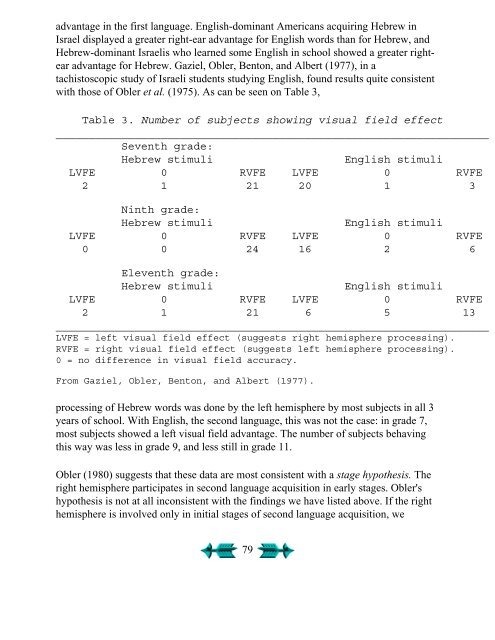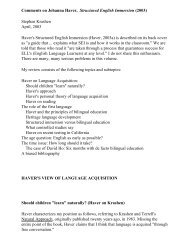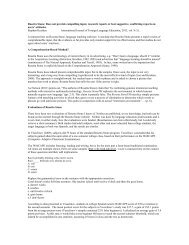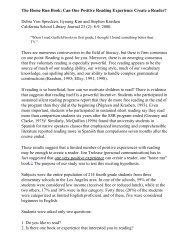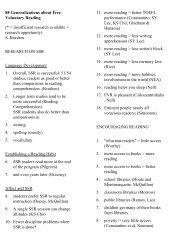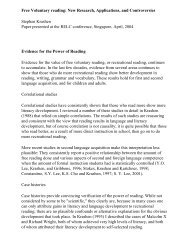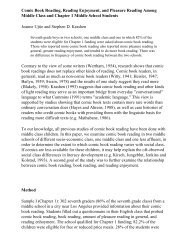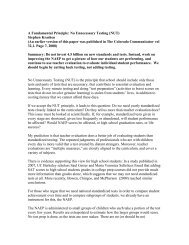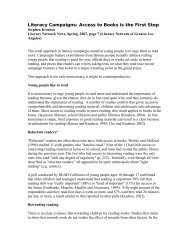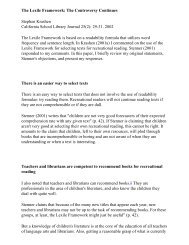Second Language Acquisition and Second ... - Stephen Krashen
Second Language Acquisition and Second ... - Stephen Krashen
Second Language Acquisition and Second ... - Stephen Krashen
Create successful ePaper yourself
Turn your PDF publications into a flip-book with our unique Google optimized e-Paper software.
advantage in the first language. English-dominant Americans acquiring Hebrew in<br />
Israel displayed a greater right-ear advantage for English words than for Hebrew, <strong>and</strong><br />
Hebrew-dominant Israelis who learned some English in school showed a greater rightear<br />
advantage for Hebrew. Gaziel, Obler, Benton, <strong>and</strong> Albert (1977), in a<br />
tachistoscopic study of Israeli students studying English, found results quite consistent<br />
with those of Obler et al. (1975). As can be seen on Table 3,<br />
Table 3. Number of subjects showing visual field effect<br />
__________________________________________________________________<br />
Seventh grade:<br />
Hebrew stimuli English stimuli<br />
LVFE 0 RVFE LVFE 0 RVFE<br />
2 1 21 20 1 3<br />
Ninth grade:<br />
Hebrew stimuli English stimuli<br />
LVFE 0 RVFE LVFE 0 RVFE<br />
0 0 24 16 2 6<br />
Eleventh grade:<br />
Hebrew stimuli English stimuli<br />
LVFE 0 RVFE LVFE 0 RVFE<br />
2 1 21 6 5 13<br />
__________________________________________________________________<br />
LVFE = left visual field effect (suggests right hemisphere processing).<br />
RVFE = right visual field effect (suggests left hemisphere processing).<br />
0 = no difference in visual field accuracy.<br />
From Gaziel, Obler, Benton, <strong>and</strong> Albert (1977).<br />
processing of Hebrew words was done by the left hemisphere by most subjects in all 3<br />
years of school. With English, the second language, this was not the case: in grade 7,<br />
most subjects showed a left visual field advantage. The number of subjects behaving<br />
this way was less in grade 9, <strong>and</strong> less still in grade 11.<br />
Obler (1980) suggests that these data are most consistent with a stage hypothesis. The<br />
right hemisphere participates in second language acquisition in early stages. Obler's<br />
hypothesis is not at all inconsistent with the findings we have listed above. If the right<br />
hemisphere is involved only in initial stages of second language acquisition, we<br />
79


